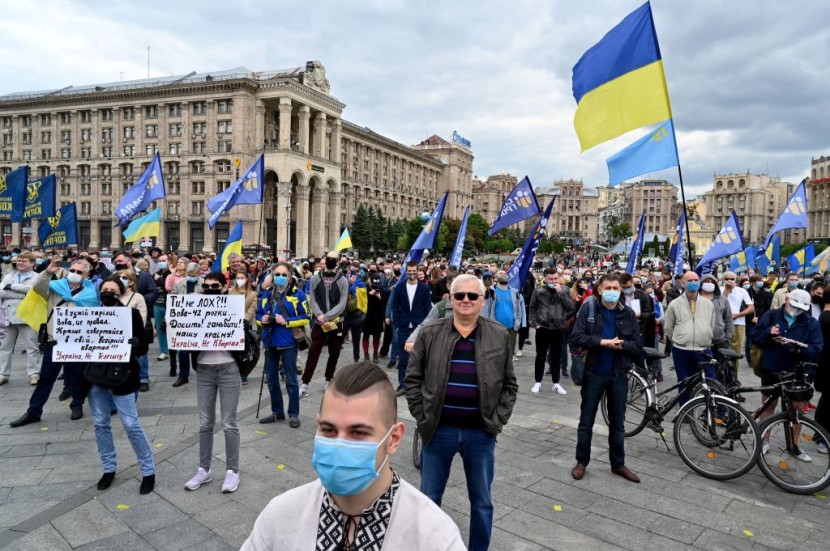
Russian President Vladimir Putin called on the European Union members to help stem the rise of Nazism in Ukraine, which is a developing threat.
Moscow has underscored the threat of modern Nazis that should be cracked down in Ukraine, where instances are glorifying Hitler's legacy, which is still recognized by far-rightists.
Nazi official Stepan Bandera's legacy
Kiev is where countless far-rightists held a march to celebrate the birthday of Stepan Bandera, one of the Fuhrer's collaborators, reported the Express UK.
A top Russian legislator called for a pan-European response to the march. A Telegram post by State Duma Chairman Vyacheslav Volodin said the protestors' actions are detestable.
Saying that it is wrong that Nazi officials, who orchestrated horrors, are Nazi supporters, burnt communities to the ground, massacred older folk, mothers, children, and infants, are glorified again in the twenty-first century, cite RT.
Moscow remarked that Brussels must be stand side by side to condemn the vestiges of Hitler and place sanctions on Kiev for such support.
Putin said the Ukraine march should scour the European Parliament, Council of Europe, and the OSCE PA. He added that the promotion of patriotism must be made responsible, with sanctions that should be applied, including everything which must be designed to stop its resurgence in Europe.
One observation is the country is pushing Ukrainian Nazism to a nationalist frame of mind and ideology; the Russian leader made it clear that EU parliamentarians will hear of his grievance in the upcoming state meetings.
The massing of Russian troops on the Ukraine border has made the tension explosive with Moscow and Kyiv, pushing Europe to potential conflict, noted DW.
Josep Borrell, the EU's top diplomat, attended the Ukraine frontline last week as part of a solidarity trip with Kyiv.
The Organization of Ukrainian Nationalists (OUN) was formerly led by Mr. Bandera, associated with Nazi Germany during the Second World War.
He was a nationalist leader who got killed by an assassin in Munich, Germany, during the year 1959, regarded as a Hero to Kiev nationalists due to his fight for freedom in the thirties and forties.
March held to glorify Nazi officials
Unfortunately, others consider him a war criminal, alleging that his nationalist forces committed numerous crimes against Jews and Poles during the war.
According to Moscow, the organization has a terrible history of violence that has been overlooked. It is notorious for thousands of deaths, such as genocide in Volhynia and Eastern Galicia. In two years, they caused the deaths of 100,000 people.
A legacy of the OUN leader and Nazi sympathizer has drawn mixed reactions in several administrations. In 2010, Bandera was hailed as a Ukraine hero by exiting leader, President Viktor Yushchenko. It did not take long before, in 2011, by the next Kiev Leader, Viktor Yanukovych.
But Yanukovych got ejected from office in 2014; the capital's city council recalled the Moscow Avenue, and it became Stepan Bandera Avenue; to mark the invasion of Ukraine. Israel, like Russian, condemned the march by the OUN in the capital.
Vladimir Putin called Ukrainian Nazism in the form of Bandera's legacy as a vestige of Germany that terrorized Europe in the 40s.








